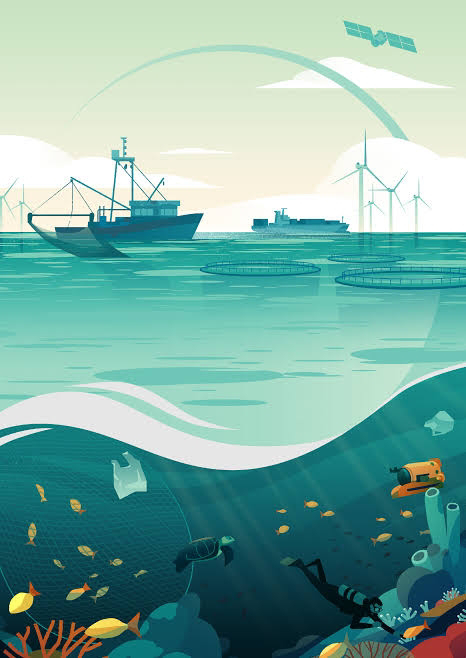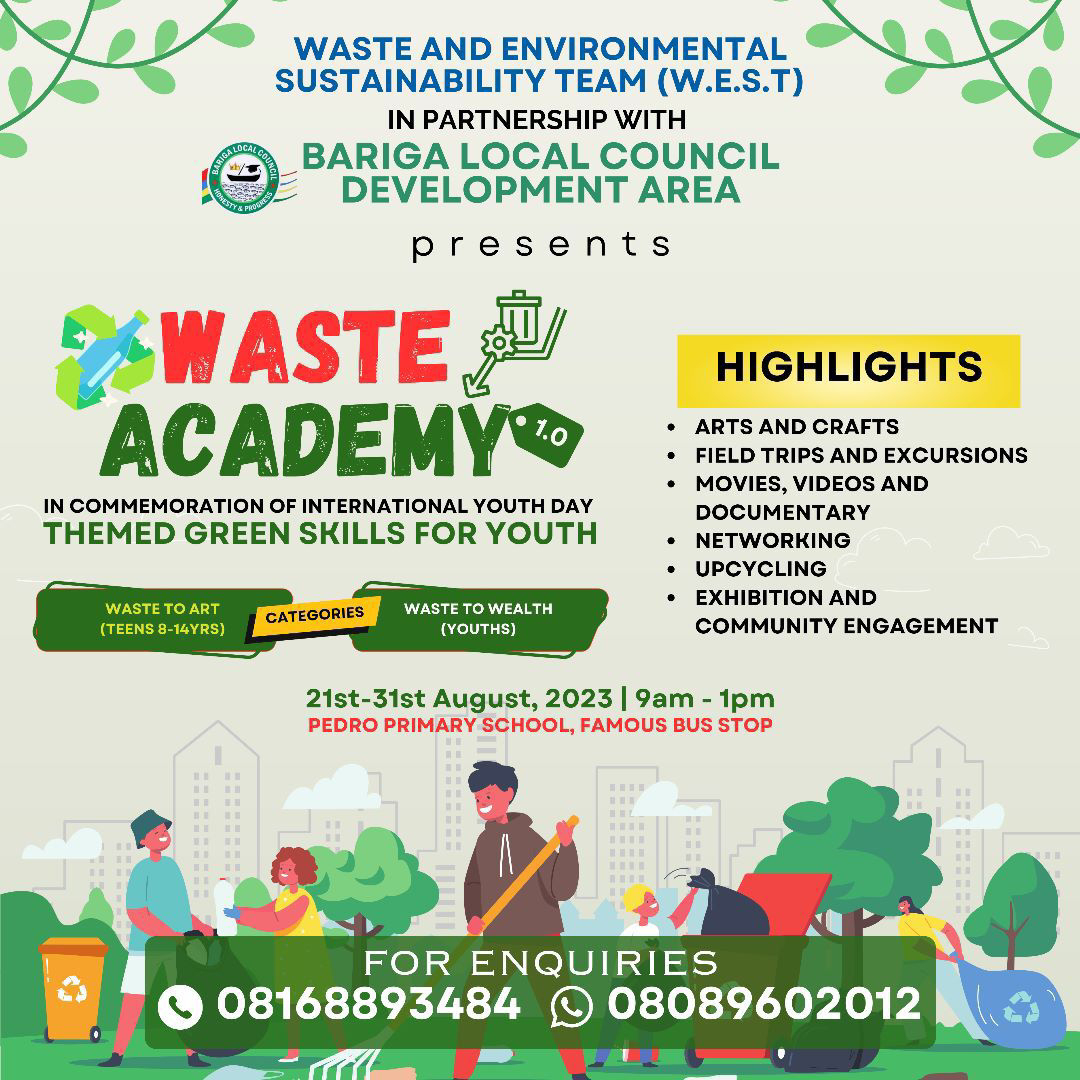THE AFRICA WE WANT
Abdulquadir Iyanda Jimoh
Corruption In Africa, The Harbinger Of Ill Wind
It is human nature to have and still want to steal (greed). It happens everywhere in the world.
But our inaction to punish corrupt officials in our Governments has allowed corruption to thrive and also given people much confidence to see looting as a legitimate enterprise.
This negligence affects every area of our lives, especially in the fight against climate change and other environmental challenges that are facing Africa.
Meanwhile, punishing environmental offenders will surely serve as a deterrent to many. The most important thing also is to put our environment in a safer position of sustainability for the future generation.
In addition to the detrimental effects of corruption on the environment, an expanded scope of this piece could also address the broader social, political, and economic consequences of corruption in our land, Africa. Amongst these includes:
• Social consequences: Corruption perpetuates inequality and poverty in African societies. When public funds are embezzled or misappropriated, essential services such as healthcare, education, and infrastructure development suffer. This further widens the gap between the rich and the poor, leading to social unrest, disillusionment, and increased crime rates. Expanding on these social consequences will highlight the urgent need for effective anti-corruption measures to ensure a more equitable society.
• Political consequences: Corruption erodes public trust in government institutions and undermines the credibility of democratic processes. It weakens the effectiveness of governance systems and hampers the rule of law, leading to political instability and a lack of confidence in leaders. Meanwhile, am still exploring the instances of corrupt practices affecting elections, transparency in public procurement, and the overall functioning of democratic institutions in most African countries as we can witness.
• Economic consequences: Corruption has severe economic consequences for African countries. It stifles foreign direct investment, hampers economic growth, and distorts market competition. It diverts resources away from productive sectors and discourages innovation and entrepreneurship. While on these economic repercussions, we can see how corruption hampers the continent's development potential and perpetuates a cycle of poverty.
• International implications: Corruption in Africa has not only internal ramifications but also impacts the global community. For instance, it undermines foreign aid and development assistance programs, ultimately affecting the achievement of the United Nations Sustainable Development Goals, UNSDGs. It also facilitates illicit financial flows and money laundering, often involving international actors. By examining the international dimensions of corruption in Africa, the Government and social actors need to emphasize global collaboration to combat this issue.
Moreover, In addressing the various anti-corruption initiatives and success stories in Africa, I will highlight some effective measures and success stories from selected countries in Africa that have played some progressive roles and also taken positive actions in tackling and submerging corruption to the barest minimum in their countries:
1. Rwanda: Rwanda has been widely acknowledged for its successful anti-corruption efforts. The government has implemented strict measures such as a zero-tolerance policy towards corruption, promotion of transparency, and establishment of specialized anti-corruption institutions. As a result, Rwanda has significantly improved its ranking on corruption indexes and has become one of the least corrupt countries in Africa.
2. Botswana: Botswana is another African country that has made significant progress in reducing corruption. The government has adopted a multi-faceted approach to combat corruption, including strengthening anti-corruption legislation, establishing robust institutions, and promoting a culture of transparency and accountability. As a result, Botswana has consistently ranked highly on corruption indexes and has become an example of good governance in Africa.
3. Ghana: Ghana has also shown notable progress in its fight against corruption. The government has implemented various initiatives such as the establishment of an independent anti-corruption body, the creation of dedicated anti-corruption units, and the introduction of transparency and accountability measures. Through these efforts, Ghana has seen improvements in its corruption perception index and has demonstrated a commitment to curbing corruption.
4. Mauritius: Mauritius is recognized as one of the least corrupt countries in Africa, with a strong commitment to good governance. The country has implemented comprehensive anti-corruption measures, including the establishment of an Integrity Reporting Service and a dedicated anti-corruption agency. These efforts, along with a culture of transparency and accountability, have contributed to Mauritius' success in reducing corruption.
5. South Africa: Although South Africa faces significant corruption challenges, the country has taken steps to address this issue. Notable initiatives include the establishment of the Special Investigating Unit (SIU) and various anti-corruption task forces. These efforts have resulted in high-profile corruption investigations and prosecutions, demonstrating the government's commitment to tackling corruption.
These success stories highlight various strategies and practices that have proven effective in reducing corruption. Common themes include robust anti-corruption legislation, the establishment of specialized institutions, the promotion of transparency and accountability, and the commitment of political leaders to fight corruption. These examples provide hope and demonstrate that change is indeed possible in combating corruption in Africa.
By expanding the scope to address those listed areas above, in short, I have provided a more comprehensive understanding of the far-reaching impact of corruption in Africa and the urgency of robust actions to combat it.
#TheAfricaWeWant.




Comments
Post a Comment